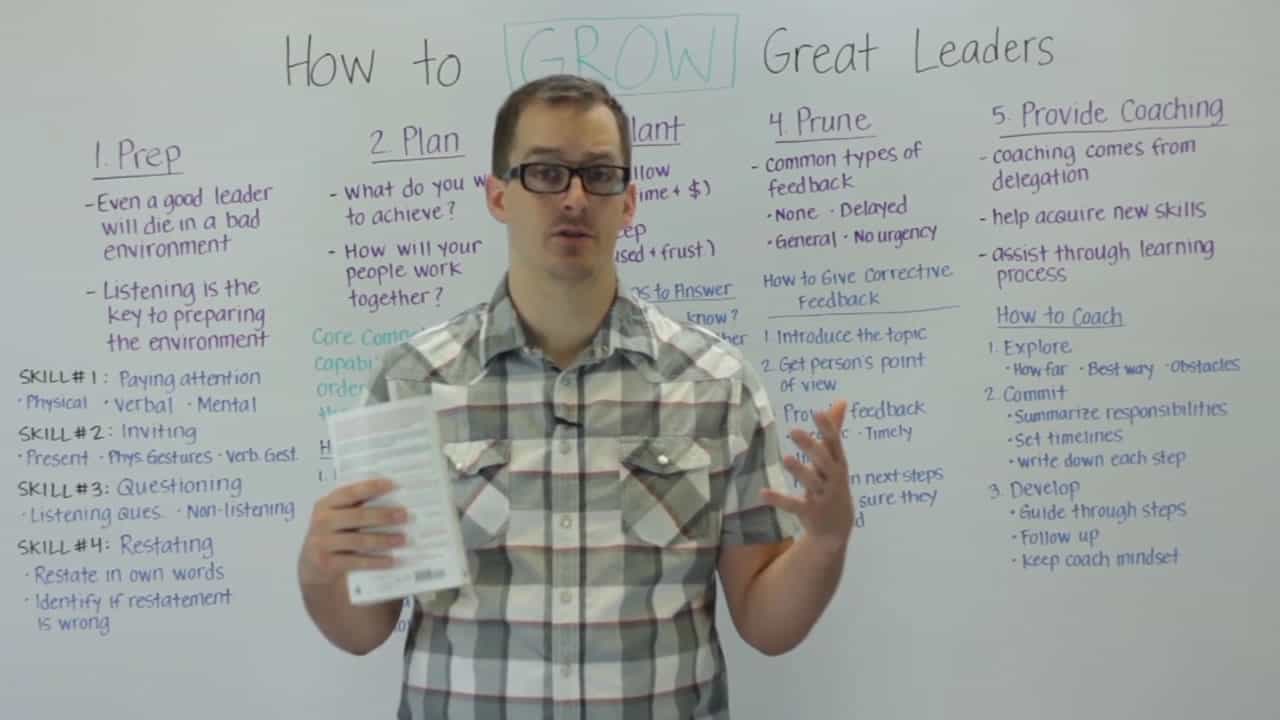
10 Oct 4 Ways To Improve Your Listening
The key to making a great environment is listening. Listening allows you to know what’s going on in your organization and to truly grasp how people are thinking, feeling, and what they need from you. Listening not only makes you a stronger leader, but it also makes the people in your organization feel more confident and secure. So let’s take a look at four things you can improve on this week.
Paying Attention
The first thing you can improve on is truly paying attention while listening. Now this one is especially difficult for me, because I’m kind of an ADD person and it’s hard for me to pay attention for a long time. But I learned of a couple different tips that were really, really good and helped me out. The first is by paying attention physically, verbally, and mentally. There’s a couple different ways you can do this.
Physically
Physically is all about eye contact and body language. You can use your body to communicate to someone that you are honed in on what they are saying just as much as anything else. When you purposely look into someone’s eyes, you communicate that you are engaged and interested in what they are saying. Body language can accomplish the same thing. Imagine talking to someone with their back turned toward you. You wouldn’t feel like they were engaged.
Verbally
Showing you are paying attention verbally helps to keep you engaged as well as show the speaker that you are engaged. This is about giving reassurance throughout the conversation. It could mean saying words that show you are on board like “Oh yeah! or wow!” but it could also be non-verbal sounds like “hhmmm” or “mmm”. This encourages the speaker that you understand what he is saying and it also helps to keep you paying attention because you wouldn’t want to get caught affirming something wrong or negative.
Mentally
Paying attention mentally is the biggest fault of people today I think. I have friends that you can’t have any conversation with them without seeing them glance at their phone, respond to texts, or even make eye contact with others and start a new conversation before ours is done. And I know you know people like that too. It’s so aggravating. When you are listening to someone, shit down everything else that can be a mental distraction. Don’t just listen to the words that are being said, but also try to follow their train of thought and see where the conversation is heading.
Being Inviting
The next thing that you can work on to become a better listener is to be inviting. Well you might ask how can you be inviting while you’re listening? There’s a couple different ways. One is by showing that you’re present. This goes back to having eye contact and body language to show that you’re present, you’re honed in, listening to what they have to say. It also means showing people that you have time for them. Most people are pretty good at picking up signals. When we walk into the office we know who is having a bad day. Part of being a good listener is communicating non-verbally to people that you are open to dedicating time to listen to them. You are approachable.
Questioning
The next thing to work on to be a good listener is asking good questions. Now there’s 2 different types of questions you can ask during a conversation. There’s both listening and there’s non-listening questions. Listening questions are all about gathering information. They’re based on a sense of curiosity. You’re trying to figure out exactly what it is that they’re talking so you’re asking them questions to help them explain better what they’re talking about or explain how they’re feeling. You’re also asking what the speaker’s point of view is and getting clarification on how they’re seeing the situation.
Non-listening questions however, is where you share more information than you’re looking to gather. You ask questions that lead you to share your own information, your point of view, you try to give direction to the conversation, and you try to solve their problem. When we interject these things into a conversation it makes a break in the person’s thought process as they’re trying to communicate and it plainly shows that you care more about your own thoughts then theirs. Most likely they won’t be back to talk anytime soon.
Restating
Alright now the last thing you can do is to restate back what the person said. This is a really important thing to do. At the end of the conversation, you need to restate to that person exactly what it was that they said. In your own words, of course. But by doing that, you communicate to them that you were paying attention and it also provides an opportunity so that if you were wrong in restated, or maybe you didn’t understand it correctly, they can take that moment to clarify what it was that they really meant.
For more on this and other ideas, check out our video on Growing Great Leaders.



